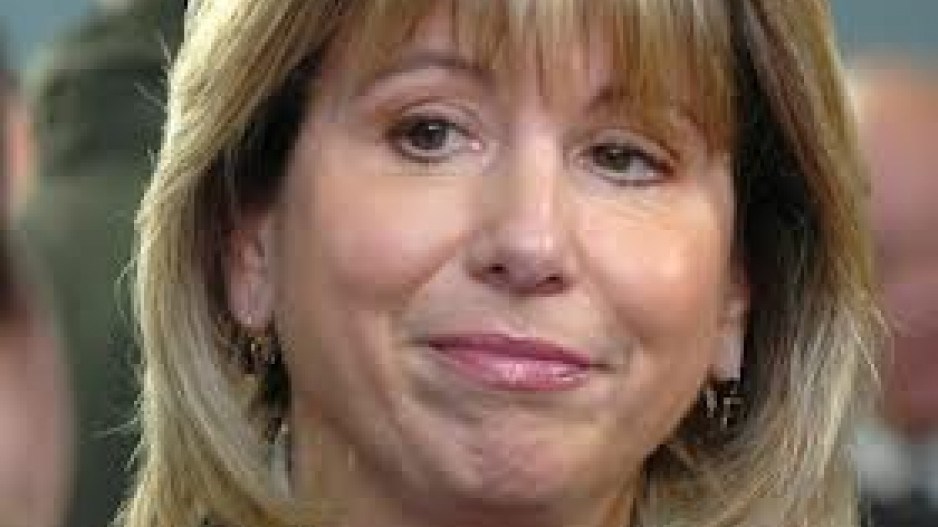Transportation Minister Todd Stone has so far been mum on the question his government will ask Lower Mainland voters on an upcoming transit funding referendum, expected to take place during the November 2013 municipal election.
Surrey mayor Dianne Watts, however, has a suggestion.
“Do you support a reduction in gas tax, a cap on the existing 3% on property taxes for TransLink, and implementation of a fair and equitable road pricing policy, under one umbrella, to fund the expansion of the transportation system?”
Watts offered her preferred version of the referendum question during a session focusing on transit and transportation at the Vancouver Board of Trade's Economic Outlook event on January 16.
Peter Hall, a professor of urban studies at Simon Fraser University, took a less-serious stab at the big question.
“Are you willing to to pay 'x' dollars today to ensure that the guy driving in front of you on the highway is taking transit tomorrow?” he suggested.
Vancouver mayor Gregor Robertson said he agreed with Watts' version, adding that other successful funding referendums have included information on what services people will get in return for additional funding.
“So a yes or no question on a package of investments that we need across the region ... do you support the funding tools Dianne [Watts] was speaking of?” he said.
Watts said the way road pricing is currently done in British Columbia is a “mish-mash of nonsense,” with TransLink being responsible for tolling the Golden Ears Bridge and the province in charge of the Port Mann and future George Massey Bridge.
It also makes little sense to charge a lot of money to use just one big piece of infrastructure, Watts said, because people will avoid taking the tolled bridge in favour of free routes. Tolls for the Port Mann Bridge were recently raised from $1.50 to $3 per crossing.
“There are several models of road pricing ... but when you look at best practices around the world, most of it's kept under a dollar,” Watts said. “When you're crossing a bridge it [might be] 75 cents — it depends on the whole system. You have to look at the whole system collectively.”
Panel participants also highlighted current problems with the way TransLink is currently governed, with regional mayors no longer having decision-making powers on TransLink's board.
“I think that there is a governance breakdown and there is a problem – fingers being pointed that - between responsibility and financing,” Hall said. “I think that we can improve that and I think that we need to ... have multi-level governments collaborating, and that's true for goods movement as well. It's not correct to say that one level of government should take all the decisions by itself.”
Business Council of British Columbia economist Ken Peacock said a “no” vote on the transit referendum would not be an immediate disaster. But, he said, the current “inequity” between Vancouver's relatively efficient transit system and the poor service communities south of the Fraser experience will have to be addressed at some point.
During the question and answer period following the panel, the question “should the bike lane madness stop” and funding be directed to transit instead raised a spontaneous round of applause from the audience.
Robertson replied that the amount of money spent on bike lanes was miniscule when compared to the billions of dollars needed for transit investment in renewal.




